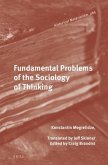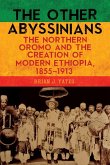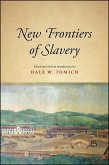- Gebundenes Buch
- Merkliste
- Auf die Merkliste
- Bewerten Bewerten
- Teilen
- Produkt teilen
- Produkterinnerung
- Produkterinnerung
In a work that constitutes the most important contribution to Nietzschean studies in recent decades, Domenico Losurdo restores the philosopher's works to their complex nineteenth-century context.
Andere Kunden interessierten sich auch für
![Fundamental Problems of the Sociology of Thinking Fundamental Problems of the Sociology of Thinking]() Konstantin MegrelidzeFundamental Problems of the Sociology of Thinking209,99 €
Konstantin MegrelidzeFundamental Problems of the Sociology of Thinking209,99 €![Pride, Manners, and Morals Pride, Manners, and Morals]() Andrea BranchiPride, Manners, and Morals122,99 €
Andrea BranchiPride, Manners, and Morals122,99 €![The Other Abyssinians The Other Abyssinians]() Brian J YatesThe Other Abyssinians130,99 €
Brian J YatesThe Other Abyssinians130,99 €![New Frontiers of Slavery New Frontiers of Slavery]() New Frontiers of Slavery113,99 €
New Frontiers of Slavery113,99 €![Homo Natura Homo Natura]() Vanessa LemmHomo Natura180,99 €
Vanessa LemmHomo Natura180,99 €![Walter Benjamin Walter Benjamin]() Howard CaygillWalter Benjamin206,99 €
Howard CaygillWalter Benjamin206,99 €![Rethinking Ernst Bloch Rethinking Ernst Bloch]() Rethinking Ernst Bloch182,99 €
Rethinking Ernst Bloch182,99 €-
-
-
In a work that constitutes the most important contribution to Nietzschean studies in recent decades, Domenico Losurdo restores the philosopher's works to their complex nineteenth-century context.
Hinweis: Dieser Artikel kann nur an eine deutsche Lieferadresse ausgeliefert werden.
Hinweis: Dieser Artikel kann nur an eine deutsche Lieferadresse ausgeliefert werden.
Produktdetails
- Produktdetails
- Verlag: Brill
- Seitenzahl: 1076
- Erscheinungstermin: 26. November 2019
- Englisch
- Abmessung: 241mm x 157mm x 61mm
- Gewicht: 1792g
- ISBN-13: 9789004270947
- ISBN-10: 9004270949
- Artikelnr.: 57095114
- Herstellerkennzeichnung
- Libri GmbH
- Europaallee 1
- 36244 Bad Hersfeld
- gpsr@libri.de
- Verlag: Brill
- Seitenzahl: 1076
- Erscheinungstermin: 26. November 2019
- Englisch
- Abmessung: 241mm x 157mm x 61mm
- Gewicht: 1792g
- ISBN-13: 9789004270947
- ISBN-10: 9004270949
- Artikelnr.: 57095114
- Herstellerkennzeichnung
- Libri GmbH
- Europaallee 1
- 36244 Bad Hersfeld
- gpsr@libri.de
Domenico Losurdo (14 November 1941 - 28 June 2018) was an Italian Marxist philosopher and historian. He was a Professor of History of Philosophy at the University of Urbino and one of the world's leading Hegel scholars and an expert on 19th and 20th-century intellectual history. He has produced a large body of scholarly work that aims at an analysis of European, and particularly German, philosophy and political thought, taking in Kant, Hegel, Marx, Nietzsche, Heidegger and, appropriately, Gramsci, as well as Bonapartism, Italian Neo-Hegelianism and historical revisionism. He also exemplifies the cultural gap that still persists between the theoretical cultures of continental Europe and the Anglo-American world. While strongly influencing Italian academia with over twenty monographs, only two of them have made it to an English translation so far. These two studies--Heidegger and the Ideology of War: Community, Death, and the West (2001; Italian edition 1991) and Hegel and the Freedom of Moderns (2004; Italian edition 1992)--have become fundamental reference works.
Introduction to the English-Language Edition
Harrison Fluss
Part 1 Nietzsche in His Time: In Struggle against Socratism and Judaism
1 The Crisis of Culture from Socrates to the Paris Commune
1
The Birth of Tragedy as a Re-interpretation of Hellenism?
2
Tragic Hellenism as Antidote to 'Weak ' Modernity
3
The Paris Commune and the Threat of a 'Horrifying Destruction ' of Culture
4
The Suicide of Tragic Hellenism as Metaphor for the Suicide of the ancien
régime
5
From the Anti-Napoleonic Wars to The Birth of Tragedy
6
The Young Nietzsche 's Adherence to German National Liberalism
7
'German Pessimism ', 'Serious View of the World ', 'Tragic View of the
World '
8
The 'German Spirit ' as 'Saviour ' and 'Redeemer ' of Zivilisation
9
'Optimism ', 'Happiness ' and Revolutionary Drift: Nietzsche 's Radicalism
10
An Anti-Pelagian Reconquest of Christianity?
11
Christianity as Subversive and a 'Religion of the Learned '
12
Eva, Persephone and Prometheus: The Reinterpretation of Original Sin
13
'Greek Serenity ', 'Sensualism ' and Socialism
14
The Apolline, the Dionysiac and the Social Question
15
Athens and Jerusalem; Apollo and Jesus, Dionysus and Apollo
16
Art, Politics and Kulturkritik
17
An Appeal for a 'Struggle against Civilisation '
18
Manifesto of the Party of the Tragic View of the World
19
Universal History, Universal Judgement, Divine Justice, Theodicy, Cosmodicy
2 Tradition, Myth and the Critique of Revolution
1
'Prejudice ' and 'Instinct ': Burke and Nietzsche
2
Hubris of Reason and 'Neocriticistic ' Reaction
3
The Radicalisation of Neo-criticism: Truth as Metaphor
4
Human Rights and Anthropocentrism
5
'Metaphysics of Genius ' and Cultural Elitism
6
The 'Doric State ' as Dictatorship in the Service of the Production of
Genius
3 Socratism and 'Present-Day Judaism '
1
Aryan 'Tragic Profundity ' and the 'Despicable Jewish Phrase '
2
Socratism and the Jewish Press in the Struggle against Germanness
3
Judaism in Music and in The Birth of Tragedy
4
Dionysian Germany and the 'Treacherous Dwarfs '
5
Alexandrianism, Judaism and the 'Jewish-Roman ' World
6
On the Threshold of a Conspiracy Theory
4 The Founding of the Second Reich, and Conflicting Myths of Origin
1
In Search of Hellenism and a volkstümlich Germanness
2
Greeks, Christians, Germans and Indo-Europeans
3
Nietzsche and the Greco-Germanic Myth of Origin
4
Imitation of France and Germany 's Abdication of its Mission
5
Social Conflict and the National-Liberal Recovery of the 'Old Faith '
6
The Young Nietzsche, the Struggle against 'Secularisation ' and the Defence
of the 'Old Faith '
7
'Secularisation ' and Crisis of Myths of Origin
5 From the 'Judaism ' of Socrates to the 'Judaism ' of Strauss
1
Myths of Origin and Anti-Semitism
2
Strauss, Judaism and the Threat to German Language and Identity
3
'Jewish International ' and 'Aesthetic International '
4
Superficial Culture [Gebildetheit] and Judaism
5
Philistinism and Judaism
6
Judeophobia, Anti-Semitism and Theoretical and Artistic Surplus in
Nietzsche and Wagner
Part 2 Nietzsche in His Time: Four Successive Approaches to the Critique of
Revolution
6 The 'Solitary Rebel ' Breaks with Tradition and the 'Popular Community '
1
Prussia 's 'Popular Enlightenment ' as Betrayal of the 'True German Spirit
'
2
The Germanic Myth of Origin and the Condemnation of Hegel
3
Delegitimisation of Modernity and Diagnosis of the 'Historical Sickness '
4
From the 'Christian ' Critique of the Philosophy of History to the Critique
of the Philosophy of History as Secularised Christianity
5
Philosophy of History, Modernity and Massification
6
Philosophy of History, élitism and the Return of Anthropocentrism
7
Cult of Tradition and Pathos of Counterrevolutionary Action
8
'Schopenhauer 's Human Being ' as Antagonist of 'Rousseau 's Human Being '
and of Revolution
9
Two Intellectual Types: The 'Deferential Bum ' and the 'Solitary Rebel '
10
Schopenhauer, Wagner and 'Consecration ' for the 'Battle '
7 The 'Solitary Rebel ' Becomes an 'Enlightener '
1
The Gründerjahre, Nietzsche 's Disenchantment, and the Banishing of the
Spectres of Greece
2
Taking One 's Distance from Germanomania and the Break with the German
National Liberals
3
Critique of Chauvinism and the Beginning of the 'Enlightenment '
4
The Deconstruction of the Christian-Germanic Myth of Origin
5
The Re-interpretation of the History of Germany: Condemnations and
Rehabilitations
6
Europe, Asia and (Reinterpreted) Greece
7
Enlightenment, Judaism and the Unity of Europe
8
Voltaire against Rousseau: Reinterpretation and Rehabilitation of the
Enlightenment
9
Nietzsche and the Anti-revolutionary Enlightenment
10
The 'Wandering ' Philosopher
11
Nietzsche in the School of Strauss
12
Biography, Psychology and History in the 'Enlightenment ' turn
8 From Anti-revolutionary 'Enlightenment ' to the Encounter with the Great
Moralists
1
Distrust of Moral Sentiments and Delegitimisation of the Appeal to 'Social
Justice '
2
Plebeian Pressure, Moral Sentiments and 'Moral Enlightenment '
3
The 'Saint ' and the Revolutionary 'Martyr ': Altruism and Narcissism
4
History, Science and Morality
5
Morality and Revolution
6
Expanding the Range of Social Conflict and Encountering the Moralists:
'Good Conscience ', 'Enchantment ' and the 'Evil Eye '
9 Between German National Liberalism and European Liberalism
1
Representative Organs, Universal Suffrage and Partitocracy
2
From the Statism of the Greek Polis to Socialism: Nietzsche, Constant and
Tocqueville
3
Political Realism and Antiquitising Utopia
4
Nietzsche, European Liberalism and the Complaint about the Crisis of
Culture
5
The Mediocrity of the Modern World and the Spectre of European 'chinoiserie
'
6
Jews, Colonial Peoples and the Mob: Inclusion and Exclusion
7
The Unity and the Peace of Europe and the Enduring Value of War
10 The Poet of the 'People 's Community ', the 'Solitary Rebel ', the
Anti-revolutionary 'Enlightener ' and the Theorist of 'Aristocratic
Radicalism '
1
From 'Enlightenment ' Turn to Immoralist Turn
2
Anti-socialist Laws, 'Practical Christianity ' and Wilhelm I 's 'Indecency
'
3
From Critique of the Social State to Critique of the 'Representative
Constitution '
4
'[W]e Cannot Help Being Revolutionaries '
5
The Shadow of Suspicion Falls on the Moralists
6
Hegel and Nietzsche: Two Opposing Critiques of the Moral Worldview
7
From Universal Guilt to the Innocence of Becoming
8
Four Stages in Nietzsche 's Development
11 'Aristocratic Radicalism ' and the 'New Party of Life '
1
The 'New Party of Life '
2
'New Nobility ' and 'New Slavery '
3
Aristocratic Distinction and Social Apartheid
4
Aristocracy, Bourgeoisie and Intellectuals
5
From Cultural Elitism to Caesarism
6
Feminist Movement and 'Universal Uglification '
7
A 'New Warrior Age '
Part 3 Nietzsche in His Time: Theory and Practice of Aristocratic
Radicalism
12 Slavery in the United States and in the Colonies and the Struggle
between Abolitionists and Anti-abolitionists
1
The Chariot of Culture and Slavery
2
Nietzsche, Slavery and the Anti-abolitionist Polemic
3
Between Reintroduction of Classical Slavery and 'New Slavery '
4
Labour and servitus in the Liberal Tradition
5
The American Civil War, the Debate on the Role of Labour and the Special
Nature of Germany
6
Otium and Labour: Freedom and Slavery of the Ancients and the Moderns
7
Marx, Nietzsche and 'Extra Work '
8
Race of Masters and Race of Servants: Boulainvilliers, Gobineau, Nietzsche
13 'Hierarchy ', Great Chain of Being and Great Chain of Pain
1
The Chariot of Culture and Compassion for the Slaves
2
The Chariot of Culture and the Resentment of the Slaves
3
Misery of the Poor and Responsibility and Boredom of the Rich
4
Schopenhauer and Nietzsche: Between 'Tragic ' Vision of Life and Relapse
into Harmonisation
14 The 'Uneducated Masses ', the 'Freethinker ' and the 'Free Spirit ':
Critique and Meta-critique of Ideology
1
Chains and Flowers: the Critique of Ideology between Marx and Nietzsche
2
Ideology as Legitimation of and Challenge to the Existing Social Order
3
Direct Violence and Form of Universality
4
From National-Liberal Reticence to the Duplicity of Aristocratic Radicalism
5
Religions as 'Means of Breeding and Education ' in the Hands of the Ruling
Classes
6
The City, the Newspaper and the Plebeians
7
'Free Spirits ' versus 'Freethinkers '
15 From the Critique of the French Revolution to the Critique of the
Jewish-Christian Revolution
1
Revolutionary Crisis and Acceleration of Historical Time
2
From the French Revolution to the Reformation, from the Reformation to the
Christian and Jewish 'Priestly Agitators '
3
Christianity and Revolution
4
Denunciation of the Revolution, Critique of 'Hope ' and Critique of the
Unilinear View of Time
5
Doctrine of the Eternal Return and Liquidation of Anthropocentrism (from
Judaism to the French Revolution)
6
Aristocratic Radicalism and Renewed Expulsion of Judaism to Asia
7
The Struggle against the Jewish-Christian Tradition and the Reconquest of
the West
16 The Long Cycle of Revolution and the Curse of Nihilism
1
Three Waves of 'Nihilism '
2
'Total Revolution ' and Political, 'Metaphysical ' and 'Poetic ' Nihilism
3
Possible Attitudes towards Nihilism
4
Nihilistic Rebelliousness as Critique and Meta-critique
5
Unease, Charm and the Curse of Nihilism in Nietzsche
6
Total Revolution, Attack on the 'Great Economy of the Whole ' and Nihilism
7
Total Negation, Nihilism and Madness
8
A Polemical Category
9
At the Source of Nihilism: Ruling Classes or Subaltern Classes?
17 The Late Nietzsche and the Longed-for Coup against the 'Social Monarchy
' of Wilhelm II and Stöcker
1
Germany as a Hotbed of Revolutionary Contagion
2
Between Friedrich III and Wilhelm II
3
The Emancipation of the 'Black Domestic Slaves ' and Wilhelm II, the 'Brown
Idiot '
4
The 'Social Monarchy ' of Stöcker and Wilhelm II and the Counterrevolution
Hoped for by Bismarck
5
'Anti-German League ' and Coup against Wilhelm II
6
Big Jewish Capital, Prussian 'Aristocratic Officers ' and Eugenic
Cross-breeding
7
'Aristocratic Radicalism ' and the Party of Friedrich III
18 'Anti-Anti-Semitism ' and the Extension to Christians and 'Anti-Semites
' of the Anti-socialist Laws
1
Anti-Jewish Polemic of the Christians and Anti-Christian Polemic of the
Jews
2
Stöcker and Disraeli: the Linking of Inclusion and Exclusion between
Germany and Britain
3
Germany, France, Russia and the Jews
4
Nietzsche and the Three
Harrison Fluss
Part 1 Nietzsche in His Time: In Struggle against Socratism and Judaism
1 The Crisis of Culture from Socrates to the Paris Commune
1
The Birth of Tragedy as a Re-interpretation of Hellenism?
2
Tragic Hellenism as Antidote to 'Weak ' Modernity
3
The Paris Commune and the Threat of a 'Horrifying Destruction ' of Culture
4
The Suicide of Tragic Hellenism as Metaphor for the Suicide of the ancien
régime
5
From the Anti-Napoleonic Wars to The Birth of Tragedy
6
The Young Nietzsche 's Adherence to German National Liberalism
7
'German Pessimism ', 'Serious View of the World ', 'Tragic View of the
World '
8
The 'German Spirit ' as 'Saviour ' and 'Redeemer ' of Zivilisation
9
'Optimism ', 'Happiness ' and Revolutionary Drift: Nietzsche 's Radicalism
10
An Anti-Pelagian Reconquest of Christianity?
11
Christianity as Subversive and a 'Religion of the Learned '
12
Eva, Persephone and Prometheus: The Reinterpretation of Original Sin
13
'Greek Serenity ', 'Sensualism ' and Socialism
14
The Apolline, the Dionysiac and the Social Question
15
Athens and Jerusalem; Apollo and Jesus, Dionysus and Apollo
16
Art, Politics and Kulturkritik
17
An Appeal for a 'Struggle against Civilisation '
18
Manifesto of the Party of the Tragic View of the World
19
Universal History, Universal Judgement, Divine Justice, Theodicy, Cosmodicy
2 Tradition, Myth and the Critique of Revolution
1
'Prejudice ' and 'Instinct ': Burke and Nietzsche
2
Hubris of Reason and 'Neocriticistic ' Reaction
3
The Radicalisation of Neo-criticism: Truth as Metaphor
4
Human Rights and Anthropocentrism
5
'Metaphysics of Genius ' and Cultural Elitism
6
The 'Doric State ' as Dictatorship in the Service of the Production of
Genius
3 Socratism and 'Present-Day Judaism '
1
Aryan 'Tragic Profundity ' and the 'Despicable Jewish Phrase '
2
Socratism and the Jewish Press in the Struggle against Germanness
3
Judaism in Music and in The Birth of Tragedy
4
Dionysian Germany and the 'Treacherous Dwarfs '
5
Alexandrianism, Judaism and the 'Jewish-Roman ' World
6
On the Threshold of a Conspiracy Theory
4 The Founding of the Second Reich, and Conflicting Myths of Origin
1
In Search of Hellenism and a volkstümlich Germanness
2
Greeks, Christians, Germans and Indo-Europeans
3
Nietzsche and the Greco-Germanic Myth of Origin
4
Imitation of France and Germany 's Abdication of its Mission
5
Social Conflict and the National-Liberal Recovery of the 'Old Faith '
6
The Young Nietzsche, the Struggle against 'Secularisation ' and the Defence
of the 'Old Faith '
7
'Secularisation ' and Crisis of Myths of Origin
5 From the 'Judaism ' of Socrates to the 'Judaism ' of Strauss
1
Myths of Origin and Anti-Semitism
2
Strauss, Judaism and the Threat to German Language and Identity
3
'Jewish International ' and 'Aesthetic International '
4
Superficial Culture [Gebildetheit] and Judaism
5
Philistinism and Judaism
6
Judeophobia, Anti-Semitism and Theoretical and Artistic Surplus in
Nietzsche and Wagner
Part 2 Nietzsche in His Time: Four Successive Approaches to the Critique of
Revolution
6 The 'Solitary Rebel ' Breaks with Tradition and the 'Popular Community '
1
Prussia 's 'Popular Enlightenment ' as Betrayal of the 'True German Spirit
'
2
The Germanic Myth of Origin and the Condemnation of Hegel
3
Delegitimisation of Modernity and Diagnosis of the 'Historical Sickness '
4
From the 'Christian ' Critique of the Philosophy of History to the Critique
of the Philosophy of History as Secularised Christianity
5
Philosophy of History, Modernity and Massification
6
Philosophy of History, élitism and the Return of Anthropocentrism
7
Cult of Tradition and Pathos of Counterrevolutionary Action
8
'Schopenhauer 's Human Being ' as Antagonist of 'Rousseau 's Human Being '
and of Revolution
9
Two Intellectual Types: The 'Deferential Bum ' and the 'Solitary Rebel '
10
Schopenhauer, Wagner and 'Consecration ' for the 'Battle '
7 The 'Solitary Rebel ' Becomes an 'Enlightener '
1
The Gründerjahre, Nietzsche 's Disenchantment, and the Banishing of the
Spectres of Greece
2
Taking One 's Distance from Germanomania and the Break with the German
National Liberals
3
Critique of Chauvinism and the Beginning of the 'Enlightenment '
4
The Deconstruction of the Christian-Germanic Myth of Origin
5
The Re-interpretation of the History of Germany: Condemnations and
Rehabilitations
6
Europe, Asia and (Reinterpreted) Greece
7
Enlightenment, Judaism and the Unity of Europe
8
Voltaire against Rousseau: Reinterpretation and Rehabilitation of the
Enlightenment
9
Nietzsche and the Anti-revolutionary Enlightenment
10
The 'Wandering ' Philosopher
11
Nietzsche in the School of Strauss
12
Biography, Psychology and History in the 'Enlightenment ' turn
8 From Anti-revolutionary 'Enlightenment ' to the Encounter with the Great
Moralists
1
Distrust of Moral Sentiments and Delegitimisation of the Appeal to 'Social
Justice '
2
Plebeian Pressure, Moral Sentiments and 'Moral Enlightenment '
3
The 'Saint ' and the Revolutionary 'Martyr ': Altruism and Narcissism
4
History, Science and Morality
5
Morality and Revolution
6
Expanding the Range of Social Conflict and Encountering the Moralists:
'Good Conscience ', 'Enchantment ' and the 'Evil Eye '
9 Between German National Liberalism and European Liberalism
1
Representative Organs, Universal Suffrage and Partitocracy
2
From the Statism of the Greek Polis to Socialism: Nietzsche, Constant and
Tocqueville
3
Political Realism and Antiquitising Utopia
4
Nietzsche, European Liberalism and the Complaint about the Crisis of
Culture
5
The Mediocrity of the Modern World and the Spectre of European 'chinoiserie
'
6
Jews, Colonial Peoples and the Mob: Inclusion and Exclusion
7
The Unity and the Peace of Europe and the Enduring Value of War
10 The Poet of the 'People 's Community ', the 'Solitary Rebel ', the
Anti-revolutionary 'Enlightener ' and the Theorist of 'Aristocratic
Radicalism '
1
From 'Enlightenment ' Turn to Immoralist Turn
2
Anti-socialist Laws, 'Practical Christianity ' and Wilhelm I 's 'Indecency
'
3
From Critique of the Social State to Critique of the 'Representative
Constitution '
4
'[W]e Cannot Help Being Revolutionaries '
5
The Shadow of Suspicion Falls on the Moralists
6
Hegel and Nietzsche: Two Opposing Critiques of the Moral Worldview
7
From Universal Guilt to the Innocence of Becoming
8
Four Stages in Nietzsche 's Development
11 'Aristocratic Radicalism ' and the 'New Party of Life '
1
The 'New Party of Life '
2
'New Nobility ' and 'New Slavery '
3
Aristocratic Distinction and Social Apartheid
4
Aristocracy, Bourgeoisie and Intellectuals
5
From Cultural Elitism to Caesarism
6
Feminist Movement and 'Universal Uglification '
7
A 'New Warrior Age '
Part 3 Nietzsche in His Time: Theory and Practice of Aristocratic
Radicalism
12 Slavery in the United States and in the Colonies and the Struggle
between Abolitionists and Anti-abolitionists
1
The Chariot of Culture and Slavery
2
Nietzsche, Slavery and the Anti-abolitionist Polemic
3
Between Reintroduction of Classical Slavery and 'New Slavery '
4
Labour and servitus in the Liberal Tradition
5
The American Civil War, the Debate on the Role of Labour and the Special
Nature of Germany
6
Otium and Labour: Freedom and Slavery of the Ancients and the Moderns
7
Marx, Nietzsche and 'Extra Work '
8
Race of Masters and Race of Servants: Boulainvilliers, Gobineau, Nietzsche
13 'Hierarchy ', Great Chain of Being and Great Chain of Pain
1
The Chariot of Culture and Compassion for the Slaves
2
The Chariot of Culture and the Resentment of the Slaves
3
Misery of the Poor and Responsibility and Boredom of the Rich
4
Schopenhauer and Nietzsche: Between 'Tragic ' Vision of Life and Relapse
into Harmonisation
14 The 'Uneducated Masses ', the 'Freethinker ' and the 'Free Spirit ':
Critique and Meta-critique of Ideology
1
Chains and Flowers: the Critique of Ideology between Marx and Nietzsche
2
Ideology as Legitimation of and Challenge to the Existing Social Order
3
Direct Violence and Form of Universality
4
From National-Liberal Reticence to the Duplicity of Aristocratic Radicalism
5
Religions as 'Means of Breeding and Education ' in the Hands of the Ruling
Classes
6
The City, the Newspaper and the Plebeians
7
'Free Spirits ' versus 'Freethinkers '
15 From the Critique of the French Revolution to the Critique of the
Jewish-Christian Revolution
1
Revolutionary Crisis and Acceleration of Historical Time
2
From the French Revolution to the Reformation, from the Reformation to the
Christian and Jewish 'Priestly Agitators '
3
Christianity and Revolution
4
Denunciation of the Revolution, Critique of 'Hope ' and Critique of the
Unilinear View of Time
5
Doctrine of the Eternal Return and Liquidation of Anthropocentrism (from
Judaism to the French Revolution)
6
Aristocratic Radicalism and Renewed Expulsion of Judaism to Asia
7
The Struggle against the Jewish-Christian Tradition and the Reconquest of
the West
16 The Long Cycle of Revolution and the Curse of Nihilism
1
Three Waves of 'Nihilism '
2
'Total Revolution ' and Political, 'Metaphysical ' and 'Poetic ' Nihilism
3
Possible Attitudes towards Nihilism
4
Nihilistic Rebelliousness as Critique and Meta-critique
5
Unease, Charm and the Curse of Nihilism in Nietzsche
6
Total Revolution, Attack on the 'Great Economy of the Whole ' and Nihilism
7
Total Negation, Nihilism and Madness
8
A Polemical Category
9
At the Source of Nihilism: Ruling Classes or Subaltern Classes?
17 The Late Nietzsche and the Longed-for Coup against the 'Social Monarchy
' of Wilhelm II and Stöcker
1
Germany as a Hotbed of Revolutionary Contagion
2
Between Friedrich III and Wilhelm II
3
The Emancipation of the 'Black Domestic Slaves ' and Wilhelm II, the 'Brown
Idiot '
4
The 'Social Monarchy ' of Stöcker and Wilhelm II and the Counterrevolution
Hoped for by Bismarck
5
'Anti-German League ' and Coup against Wilhelm II
6
Big Jewish Capital, Prussian 'Aristocratic Officers ' and Eugenic
Cross-breeding
7
'Aristocratic Radicalism ' and the Party of Friedrich III
18 'Anti-Anti-Semitism ' and the Extension to Christians and 'Anti-Semites
' of the Anti-socialist Laws
1
Anti-Jewish Polemic of the Christians and Anti-Christian Polemic of the
Jews
2
Stöcker and Disraeli: the Linking of Inclusion and Exclusion between
Germany and Britain
3
Germany, France, Russia and the Jews
4
Nietzsche and the Three
Introduction to the English-Language Edition
Harrison Fluss
Part 1 Nietzsche in His Time: In Struggle against Socratism and Judaism
1 The Crisis of Culture from Socrates to the Paris Commune
1
The Birth of Tragedy as a Re-interpretation of Hellenism?
2
Tragic Hellenism as Antidote to 'Weak ' Modernity
3
The Paris Commune and the Threat of a 'Horrifying Destruction ' of Culture
4
The Suicide of Tragic Hellenism as Metaphor for the Suicide of the ancien
régime
5
From the Anti-Napoleonic Wars to The Birth of Tragedy
6
The Young Nietzsche 's Adherence to German National Liberalism
7
'German Pessimism ', 'Serious View of the World ', 'Tragic View of the
World '
8
The 'German Spirit ' as 'Saviour ' and 'Redeemer ' of Zivilisation
9
'Optimism ', 'Happiness ' and Revolutionary Drift: Nietzsche 's Radicalism
10
An Anti-Pelagian Reconquest of Christianity?
11
Christianity as Subversive and a 'Religion of the Learned '
12
Eva, Persephone and Prometheus: The Reinterpretation of Original Sin
13
'Greek Serenity ', 'Sensualism ' and Socialism
14
The Apolline, the Dionysiac and the Social Question
15
Athens and Jerusalem; Apollo and Jesus, Dionysus and Apollo
16
Art, Politics and Kulturkritik
17
An Appeal for a 'Struggle against Civilisation '
18
Manifesto of the Party of the Tragic View of the World
19
Universal History, Universal Judgement, Divine Justice, Theodicy, Cosmodicy
2 Tradition, Myth and the Critique of Revolution
1
'Prejudice ' and 'Instinct ': Burke and Nietzsche
2
Hubris of Reason and 'Neocriticistic ' Reaction
3
The Radicalisation of Neo-criticism: Truth as Metaphor
4
Human Rights and Anthropocentrism
5
'Metaphysics of Genius ' and Cultural Elitism
6
The 'Doric State ' as Dictatorship in the Service of the Production of
Genius
3 Socratism and 'Present-Day Judaism '
1
Aryan 'Tragic Profundity ' and the 'Despicable Jewish Phrase '
2
Socratism and the Jewish Press in the Struggle against Germanness
3
Judaism in Music and in The Birth of Tragedy
4
Dionysian Germany and the 'Treacherous Dwarfs '
5
Alexandrianism, Judaism and the 'Jewish-Roman ' World
6
On the Threshold of a Conspiracy Theory
4 The Founding of the Second Reich, and Conflicting Myths of Origin
1
In Search of Hellenism and a volkstümlich Germanness
2
Greeks, Christians, Germans and Indo-Europeans
3
Nietzsche and the Greco-Germanic Myth of Origin
4
Imitation of France and Germany 's Abdication of its Mission
5
Social Conflict and the National-Liberal Recovery of the 'Old Faith '
6
The Young Nietzsche, the Struggle against 'Secularisation ' and the Defence
of the 'Old Faith '
7
'Secularisation ' and Crisis of Myths of Origin
5 From the 'Judaism ' of Socrates to the 'Judaism ' of Strauss
1
Myths of Origin and Anti-Semitism
2
Strauss, Judaism and the Threat to German Language and Identity
3
'Jewish International ' and 'Aesthetic International '
4
Superficial Culture [Gebildetheit] and Judaism
5
Philistinism and Judaism
6
Judeophobia, Anti-Semitism and Theoretical and Artistic Surplus in
Nietzsche and Wagner
Part 2 Nietzsche in His Time: Four Successive Approaches to the Critique of
Revolution
6 The 'Solitary Rebel ' Breaks with Tradition and the 'Popular Community '
1
Prussia 's 'Popular Enlightenment ' as Betrayal of the 'True German Spirit
'
2
The Germanic Myth of Origin and the Condemnation of Hegel
3
Delegitimisation of Modernity and Diagnosis of the 'Historical Sickness '
4
From the 'Christian ' Critique of the Philosophy of History to the Critique
of the Philosophy of History as Secularised Christianity
5
Philosophy of History, Modernity and Massification
6
Philosophy of History, élitism and the Return of Anthropocentrism
7
Cult of Tradition and Pathos of Counterrevolutionary Action
8
'Schopenhauer 's Human Being ' as Antagonist of 'Rousseau 's Human Being '
and of Revolution
9
Two Intellectual Types: The 'Deferential Bum ' and the 'Solitary Rebel '
10
Schopenhauer, Wagner and 'Consecration ' for the 'Battle '
7 The 'Solitary Rebel ' Becomes an 'Enlightener '
1
The Gründerjahre, Nietzsche 's Disenchantment, and the Banishing of the
Spectres of Greece
2
Taking One 's Distance from Germanomania and the Break with the German
National Liberals
3
Critique of Chauvinism and the Beginning of the 'Enlightenment '
4
The Deconstruction of the Christian-Germanic Myth of Origin
5
The Re-interpretation of the History of Germany: Condemnations and
Rehabilitations
6
Europe, Asia and (Reinterpreted) Greece
7
Enlightenment, Judaism and the Unity of Europe
8
Voltaire against Rousseau: Reinterpretation and Rehabilitation of the
Enlightenment
9
Nietzsche and the Anti-revolutionary Enlightenment
10
The 'Wandering ' Philosopher
11
Nietzsche in the School of Strauss
12
Biography, Psychology and History in the 'Enlightenment ' turn
8 From Anti-revolutionary 'Enlightenment ' to the Encounter with the Great
Moralists
1
Distrust of Moral Sentiments and Delegitimisation of the Appeal to 'Social
Justice '
2
Plebeian Pressure, Moral Sentiments and 'Moral Enlightenment '
3
The 'Saint ' and the Revolutionary 'Martyr ': Altruism and Narcissism
4
History, Science and Morality
5
Morality and Revolution
6
Expanding the Range of Social Conflict and Encountering the Moralists:
'Good Conscience ', 'Enchantment ' and the 'Evil Eye '
9 Between German National Liberalism and European Liberalism
1
Representative Organs, Universal Suffrage and Partitocracy
2
From the Statism of the Greek Polis to Socialism: Nietzsche, Constant and
Tocqueville
3
Political Realism and Antiquitising Utopia
4
Nietzsche, European Liberalism and the Complaint about the Crisis of
Culture
5
The Mediocrity of the Modern World and the Spectre of European 'chinoiserie
'
6
Jews, Colonial Peoples and the Mob: Inclusion and Exclusion
7
The Unity and the Peace of Europe and the Enduring Value of War
10 The Poet of the 'People 's Community ', the 'Solitary Rebel ', the
Anti-revolutionary 'Enlightener ' and the Theorist of 'Aristocratic
Radicalism '
1
From 'Enlightenment ' Turn to Immoralist Turn
2
Anti-socialist Laws, 'Practical Christianity ' and Wilhelm I 's 'Indecency
'
3
From Critique of the Social State to Critique of the 'Representative
Constitution '
4
'[W]e Cannot Help Being Revolutionaries '
5
The Shadow of Suspicion Falls on the Moralists
6
Hegel and Nietzsche: Two Opposing Critiques of the Moral Worldview
7
From Universal Guilt to the Innocence of Becoming
8
Four Stages in Nietzsche 's Development
11 'Aristocratic Radicalism ' and the 'New Party of Life '
1
The 'New Party of Life '
2
'New Nobility ' and 'New Slavery '
3
Aristocratic Distinction and Social Apartheid
4
Aristocracy, Bourgeoisie and Intellectuals
5
From Cultural Elitism to Caesarism
6
Feminist Movement and 'Universal Uglification '
7
A 'New Warrior Age '
Part 3 Nietzsche in His Time: Theory and Practice of Aristocratic
Radicalism
12 Slavery in the United States and in the Colonies and the Struggle
between Abolitionists and Anti-abolitionists
1
The Chariot of Culture and Slavery
2
Nietzsche, Slavery and the Anti-abolitionist Polemic
3
Between Reintroduction of Classical Slavery and 'New Slavery '
4
Labour and servitus in the Liberal Tradition
5
The American Civil War, the Debate on the Role of Labour and the Special
Nature of Germany
6
Otium and Labour: Freedom and Slavery of the Ancients and the Moderns
7
Marx, Nietzsche and 'Extra Work '
8
Race of Masters and Race of Servants: Boulainvilliers, Gobineau, Nietzsche
13 'Hierarchy ', Great Chain of Being and Great Chain of Pain
1
The Chariot of Culture and Compassion for the Slaves
2
The Chariot of Culture and the Resentment of the Slaves
3
Misery of the Poor and Responsibility and Boredom of the Rich
4
Schopenhauer and Nietzsche: Between 'Tragic ' Vision of Life and Relapse
into Harmonisation
14 The 'Uneducated Masses ', the 'Freethinker ' and the 'Free Spirit ':
Critique and Meta-critique of Ideology
1
Chains and Flowers: the Critique of Ideology between Marx and Nietzsche
2
Ideology as Legitimation of and Challenge to the Existing Social Order
3
Direct Violence and Form of Universality
4
From National-Liberal Reticence to the Duplicity of Aristocratic Radicalism
5
Religions as 'Means of Breeding and Education ' in the Hands of the Ruling
Classes
6
The City, the Newspaper and the Plebeians
7
'Free Spirits ' versus 'Freethinkers '
15 From the Critique of the French Revolution to the Critique of the
Jewish-Christian Revolution
1
Revolutionary Crisis and Acceleration of Historical Time
2
From the French Revolution to the Reformation, from the Reformation to the
Christian and Jewish 'Priestly Agitators '
3
Christianity and Revolution
4
Denunciation of the Revolution, Critique of 'Hope ' and Critique of the
Unilinear View of Time
5
Doctrine of the Eternal Return and Liquidation of Anthropocentrism (from
Judaism to the French Revolution)
6
Aristocratic Radicalism and Renewed Expulsion of Judaism to Asia
7
The Struggle against the Jewish-Christian Tradition and the Reconquest of
the West
16 The Long Cycle of Revolution and the Curse of Nihilism
1
Three Waves of 'Nihilism '
2
'Total Revolution ' and Political, 'Metaphysical ' and 'Poetic ' Nihilism
3
Possible Attitudes towards Nihilism
4
Nihilistic Rebelliousness as Critique and Meta-critique
5
Unease, Charm and the Curse of Nihilism in Nietzsche
6
Total Revolution, Attack on the 'Great Economy of the Whole ' and Nihilism
7
Total Negation, Nihilism and Madness
8
A Polemical Category
9
At the Source of Nihilism: Ruling Classes or Subaltern Classes?
17 The Late Nietzsche and the Longed-for Coup against the 'Social Monarchy
' of Wilhelm II and Stöcker
1
Germany as a Hotbed of Revolutionary Contagion
2
Between Friedrich III and Wilhelm II
3
The Emancipation of the 'Black Domestic Slaves ' and Wilhelm II, the 'Brown
Idiot '
4
The 'Social Monarchy ' of Stöcker and Wilhelm II and the Counterrevolution
Hoped for by Bismarck
5
'Anti-German League ' and Coup against Wilhelm II
6
Big Jewish Capital, Prussian 'Aristocratic Officers ' and Eugenic
Cross-breeding
7
'Aristocratic Radicalism ' and the Party of Friedrich III
18 'Anti-Anti-Semitism ' and the Extension to Christians and 'Anti-Semites
' of the Anti-socialist Laws
1
Anti-Jewish Polemic of the Christians and Anti-Christian Polemic of the
Jews
2
Stöcker and Disraeli: the Linking of Inclusion and Exclusion between
Germany and Britain
3
Germany, France, Russia and the Jews
4
Nietzsche and the Three
Harrison Fluss
Part 1 Nietzsche in His Time: In Struggle against Socratism and Judaism
1 The Crisis of Culture from Socrates to the Paris Commune
1
The Birth of Tragedy as a Re-interpretation of Hellenism?
2
Tragic Hellenism as Antidote to 'Weak ' Modernity
3
The Paris Commune and the Threat of a 'Horrifying Destruction ' of Culture
4
The Suicide of Tragic Hellenism as Metaphor for the Suicide of the ancien
régime
5
From the Anti-Napoleonic Wars to The Birth of Tragedy
6
The Young Nietzsche 's Adherence to German National Liberalism
7
'German Pessimism ', 'Serious View of the World ', 'Tragic View of the
World '
8
The 'German Spirit ' as 'Saviour ' and 'Redeemer ' of Zivilisation
9
'Optimism ', 'Happiness ' and Revolutionary Drift: Nietzsche 's Radicalism
10
An Anti-Pelagian Reconquest of Christianity?
11
Christianity as Subversive and a 'Religion of the Learned '
12
Eva, Persephone and Prometheus: The Reinterpretation of Original Sin
13
'Greek Serenity ', 'Sensualism ' and Socialism
14
The Apolline, the Dionysiac and the Social Question
15
Athens and Jerusalem; Apollo and Jesus, Dionysus and Apollo
16
Art, Politics and Kulturkritik
17
An Appeal for a 'Struggle against Civilisation '
18
Manifesto of the Party of the Tragic View of the World
19
Universal History, Universal Judgement, Divine Justice, Theodicy, Cosmodicy
2 Tradition, Myth and the Critique of Revolution
1
'Prejudice ' and 'Instinct ': Burke and Nietzsche
2
Hubris of Reason and 'Neocriticistic ' Reaction
3
The Radicalisation of Neo-criticism: Truth as Metaphor
4
Human Rights and Anthropocentrism
5
'Metaphysics of Genius ' and Cultural Elitism
6
The 'Doric State ' as Dictatorship in the Service of the Production of
Genius
3 Socratism and 'Present-Day Judaism '
1
Aryan 'Tragic Profundity ' and the 'Despicable Jewish Phrase '
2
Socratism and the Jewish Press in the Struggle against Germanness
3
Judaism in Music and in The Birth of Tragedy
4
Dionysian Germany and the 'Treacherous Dwarfs '
5
Alexandrianism, Judaism and the 'Jewish-Roman ' World
6
On the Threshold of a Conspiracy Theory
4 The Founding of the Second Reich, and Conflicting Myths of Origin
1
In Search of Hellenism and a volkstümlich Germanness
2
Greeks, Christians, Germans and Indo-Europeans
3
Nietzsche and the Greco-Germanic Myth of Origin
4
Imitation of France and Germany 's Abdication of its Mission
5
Social Conflict and the National-Liberal Recovery of the 'Old Faith '
6
The Young Nietzsche, the Struggle against 'Secularisation ' and the Defence
of the 'Old Faith '
7
'Secularisation ' and Crisis of Myths of Origin
5 From the 'Judaism ' of Socrates to the 'Judaism ' of Strauss
1
Myths of Origin and Anti-Semitism
2
Strauss, Judaism and the Threat to German Language and Identity
3
'Jewish International ' and 'Aesthetic International '
4
Superficial Culture [Gebildetheit] and Judaism
5
Philistinism and Judaism
6
Judeophobia, Anti-Semitism and Theoretical and Artistic Surplus in
Nietzsche and Wagner
Part 2 Nietzsche in His Time: Four Successive Approaches to the Critique of
Revolution
6 The 'Solitary Rebel ' Breaks with Tradition and the 'Popular Community '
1
Prussia 's 'Popular Enlightenment ' as Betrayal of the 'True German Spirit
'
2
The Germanic Myth of Origin and the Condemnation of Hegel
3
Delegitimisation of Modernity and Diagnosis of the 'Historical Sickness '
4
From the 'Christian ' Critique of the Philosophy of History to the Critique
of the Philosophy of History as Secularised Christianity
5
Philosophy of History, Modernity and Massification
6
Philosophy of History, élitism and the Return of Anthropocentrism
7
Cult of Tradition and Pathos of Counterrevolutionary Action
8
'Schopenhauer 's Human Being ' as Antagonist of 'Rousseau 's Human Being '
and of Revolution
9
Two Intellectual Types: The 'Deferential Bum ' and the 'Solitary Rebel '
10
Schopenhauer, Wagner and 'Consecration ' for the 'Battle '
7 The 'Solitary Rebel ' Becomes an 'Enlightener '
1
The Gründerjahre, Nietzsche 's Disenchantment, and the Banishing of the
Spectres of Greece
2
Taking One 's Distance from Germanomania and the Break with the German
National Liberals
3
Critique of Chauvinism and the Beginning of the 'Enlightenment '
4
The Deconstruction of the Christian-Germanic Myth of Origin
5
The Re-interpretation of the History of Germany: Condemnations and
Rehabilitations
6
Europe, Asia and (Reinterpreted) Greece
7
Enlightenment, Judaism and the Unity of Europe
8
Voltaire against Rousseau: Reinterpretation and Rehabilitation of the
Enlightenment
9
Nietzsche and the Anti-revolutionary Enlightenment
10
The 'Wandering ' Philosopher
11
Nietzsche in the School of Strauss
12
Biography, Psychology and History in the 'Enlightenment ' turn
8 From Anti-revolutionary 'Enlightenment ' to the Encounter with the Great
Moralists
1
Distrust of Moral Sentiments and Delegitimisation of the Appeal to 'Social
Justice '
2
Plebeian Pressure, Moral Sentiments and 'Moral Enlightenment '
3
The 'Saint ' and the Revolutionary 'Martyr ': Altruism and Narcissism
4
History, Science and Morality
5
Morality and Revolution
6
Expanding the Range of Social Conflict and Encountering the Moralists:
'Good Conscience ', 'Enchantment ' and the 'Evil Eye '
9 Between German National Liberalism and European Liberalism
1
Representative Organs, Universal Suffrage and Partitocracy
2
From the Statism of the Greek Polis to Socialism: Nietzsche, Constant and
Tocqueville
3
Political Realism and Antiquitising Utopia
4
Nietzsche, European Liberalism and the Complaint about the Crisis of
Culture
5
The Mediocrity of the Modern World and the Spectre of European 'chinoiserie
'
6
Jews, Colonial Peoples and the Mob: Inclusion and Exclusion
7
The Unity and the Peace of Europe and the Enduring Value of War
10 The Poet of the 'People 's Community ', the 'Solitary Rebel ', the
Anti-revolutionary 'Enlightener ' and the Theorist of 'Aristocratic
Radicalism '
1
From 'Enlightenment ' Turn to Immoralist Turn
2
Anti-socialist Laws, 'Practical Christianity ' and Wilhelm I 's 'Indecency
'
3
From Critique of the Social State to Critique of the 'Representative
Constitution '
4
'[W]e Cannot Help Being Revolutionaries '
5
The Shadow of Suspicion Falls on the Moralists
6
Hegel and Nietzsche: Two Opposing Critiques of the Moral Worldview
7
From Universal Guilt to the Innocence of Becoming
8
Four Stages in Nietzsche 's Development
11 'Aristocratic Radicalism ' and the 'New Party of Life '
1
The 'New Party of Life '
2
'New Nobility ' and 'New Slavery '
3
Aristocratic Distinction and Social Apartheid
4
Aristocracy, Bourgeoisie and Intellectuals
5
From Cultural Elitism to Caesarism
6
Feminist Movement and 'Universal Uglification '
7
A 'New Warrior Age '
Part 3 Nietzsche in His Time: Theory and Practice of Aristocratic
Radicalism
12 Slavery in the United States and in the Colonies and the Struggle
between Abolitionists and Anti-abolitionists
1
The Chariot of Culture and Slavery
2
Nietzsche, Slavery and the Anti-abolitionist Polemic
3
Between Reintroduction of Classical Slavery and 'New Slavery '
4
Labour and servitus in the Liberal Tradition
5
The American Civil War, the Debate on the Role of Labour and the Special
Nature of Germany
6
Otium and Labour: Freedom and Slavery of the Ancients and the Moderns
7
Marx, Nietzsche and 'Extra Work '
8
Race of Masters and Race of Servants: Boulainvilliers, Gobineau, Nietzsche
13 'Hierarchy ', Great Chain of Being and Great Chain of Pain
1
The Chariot of Culture and Compassion for the Slaves
2
The Chariot of Culture and the Resentment of the Slaves
3
Misery of the Poor and Responsibility and Boredom of the Rich
4
Schopenhauer and Nietzsche: Between 'Tragic ' Vision of Life and Relapse
into Harmonisation
14 The 'Uneducated Masses ', the 'Freethinker ' and the 'Free Spirit ':
Critique and Meta-critique of Ideology
1
Chains and Flowers: the Critique of Ideology between Marx and Nietzsche
2
Ideology as Legitimation of and Challenge to the Existing Social Order
3
Direct Violence and Form of Universality
4
From National-Liberal Reticence to the Duplicity of Aristocratic Radicalism
5
Religions as 'Means of Breeding and Education ' in the Hands of the Ruling
Classes
6
The City, the Newspaper and the Plebeians
7
'Free Spirits ' versus 'Freethinkers '
15 From the Critique of the French Revolution to the Critique of the
Jewish-Christian Revolution
1
Revolutionary Crisis and Acceleration of Historical Time
2
From the French Revolution to the Reformation, from the Reformation to the
Christian and Jewish 'Priestly Agitators '
3
Christianity and Revolution
4
Denunciation of the Revolution, Critique of 'Hope ' and Critique of the
Unilinear View of Time
5
Doctrine of the Eternal Return and Liquidation of Anthropocentrism (from
Judaism to the French Revolution)
6
Aristocratic Radicalism and Renewed Expulsion of Judaism to Asia
7
The Struggle against the Jewish-Christian Tradition and the Reconquest of
the West
16 The Long Cycle of Revolution and the Curse of Nihilism
1
Three Waves of 'Nihilism '
2
'Total Revolution ' and Political, 'Metaphysical ' and 'Poetic ' Nihilism
3
Possible Attitudes towards Nihilism
4
Nihilistic Rebelliousness as Critique and Meta-critique
5
Unease, Charm and the Curse of Nihilism in Nietzsche
6
Total Revolution, Attack on the 'Great Economy of the Whole ' and Nihilism
7
Total Negation, Nihilism and Madness
8
A Polemical Category
9
At the Source of Nihilism: Ruling Classes or Subaltern Classes?
17 The Late Nietzsche and the Longed-for Coup against the 'Social Monarchy
' of Wilhelm II and Stöcker
1
Germany as a Hotbed of Revolutionary Contagion
2
Between Friedrich III and Wilhelm II
3
The Emancipation of the 'Black Domestic Slaves ' and Wilhelm II, the 'Brown
Idiot '
4
The 'Social Monarchy ' of Stöcker and Wilhelm II and the Counterrevolution
Hoped for by Bismarck
5
'Anti-German League ' and Coup against Wilhelm II
6
Big Jewish Capital, Prussian 'Aristocratic Officers ' and Eugenic
Cross-breeding
7
'Aristocratic Radicalism ' and the Party of Friedrich III
18 'Anti-Anti-Semitism ' and the Extension to Christians and 'Anti-Semites
' of the Anti-socialist Laws
1
Anti-Jewish Polemic of the Christians and Anti-Christian Polemic of the
Jews
2
Stöcker and Disraeli: the Linking of Inclusion and Exclusion between
Germany and Britain
3
Germany, France, Russia and the Jews
4
Nietzsche and the Three








